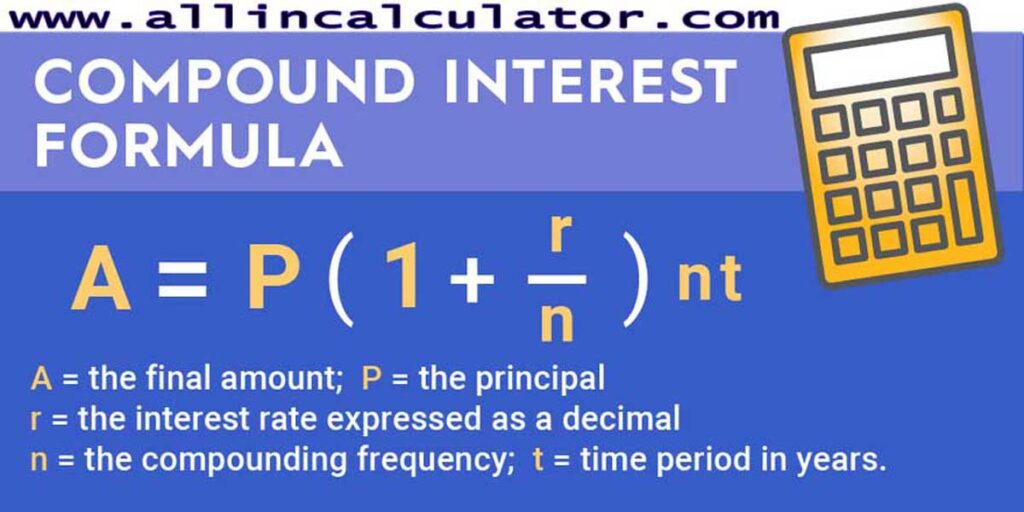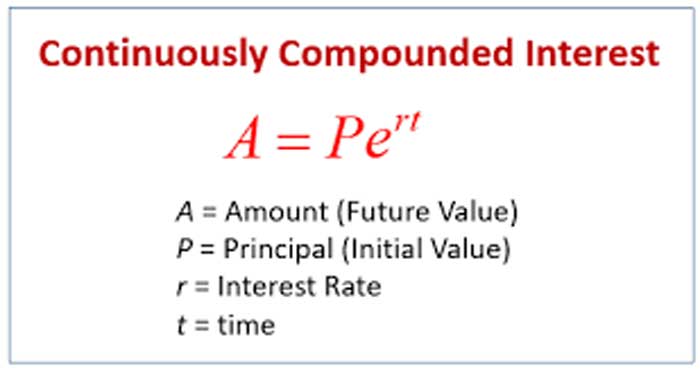When it comes to wealth creation, compound interest is often called the “eighth wonder of the world.” It allows your money to grow faster because interest is calculated not only on the principal but also on accumulated interest. To make these calculations easier, a compound interest calculator is used. It instantly shows how much your investment will grow over time depending on the rate, time, and frequency of compounding.
Whether you are saving for retirement, analyzing a bank deposit, or comparing investment options, a compound interest calculator provides clarity, accuracy, and transparency.
Compound Interest Calculator
Result:
—
What is a Compound Interest Calculator?
A compound interest calculator is an online or offline tool that helps investors, students, and financial planners compute how much a sum of money will grow with compounding. Unlike simple interest, where interest is applied only on the initial amount, compound interest keeps adding earned interest back to the principal, resulting in exponential growth.

Where:
- A = Final amount
- P = Principal amount
- r = Interest rate (in decimal)
- n = Compounding frequency
- t = Time in years
Why Use a Compound Interest Calculator?
- Accuracy: Eliminates manual errors in financial planning.
- Time-Saving: Instant results with complex compounding formulas.
- Flexibility: Choose between daily, monthly, annual, or continuous compounding.
- Planning: Ideal for retirement planning, investments, and savings.
Types of Compound Interest Calculators
1. Daily Compound Interest Calculator
A daily compound interest calculator compounds interest every day of the year. This is useful for savings accounts, credit card balances, and short-term deposits where interest accumulates rapidly.
Example:
If you invest ₹10,000 at 10% annual interest, compounded daily, after 1 year the value will be slightly higher than annual compounding because of daily additions.
2. Monthly Compound Interest Calculator
A monthly compound interest calculator compounds 12 times a year. It’s widely used for loans, mortgages, and recurring deposits.
Example:
For ₹1,00,000 invested at 12% for 5 years with monthly compounding, the returns are higher than yearly compounding due to more frequent additions.
3. Annual Compound Interest Calculator
An annual compound interest calculator compounds once per year. It’s the simplest form of compounding and is often used for long-term investments.
4. Weekly Compound Interest Calculator
A weekly compound interest calculator is useful when interest is compounded 52 times a year. This is especially relevant for short-term financial products.
5. Continuous Compound Interest Calculator
A continuous compound interest calculator assumes compounding happens infinitely many times per year using the mathematical constant e. This gives the highest possible returns for a given rate and time.

Popular Compound Interest Calculators Online
NerdWallet Compound Interest Calculator
The NerdWallet compound interest calculator is widely used in the U.S. for general savings and investment planning. It offers easy inputs and detailed results.
Bankrate Compound Interest Calculator
The Bankrate compound interest calculator is another popular choice for savings, mortgage, and retirement planning.
401k Compound Interest Calculator
A 401k compound interest calculator helps employees estimate how much their retirement fund will grow based on employer contributions and market returns.
Roth IRA Compound Interest Calculator
The Roth IRA compound interest calculator shows how much tax-free growth you can expect when saving for retirement.
CD Compound Interest Calculator
A CD compound interest calculator is designed for Certificates of Deposit, where interest is compounded monthly or annually.
Specialized Compound Interest Calculators
Compound Interest Calculator with Withdrawals
This version allows you to calculate growth while accounting for periodic withdrawals, making it ideal for pension plans and systematic withdrawals.
Compound Interest Calculator Excel
For DIY financial planners, a compound interest calculator Excel sheet can be created using formulas for personalized tracking.
Compound Interest Calculator SBI / India
In India, banks like SBI offer fixed deposits and savings schemes. A compound interest calculator SBI helps customers predict returns accurately.
Compound Interest Calculator Retirement
A compound interest calculator retirement is a must for long-term planning. It shows how investments grow over decades, helping you achieve financial independence.
Compound Interest Calculator 401k
Specifically designed for U.S. retirement accounts, this calculator factors in contributions, employer match, and market growth.
Overview Table: Comparison of Compounding Frequencies
| Type of Calculator | Compounding Frequency | Best For | Example Usage |
|---|---|---|---|
| Daily Compound Interest Calculator | 365 times/year | Savings, credit cards | Bank accounts |
| Weekly Compound Interest Calculator | 52 times/year | Short-term deposits | Short-term loans |
| Monthly Compound Interest Calculator | 12 times/year | Loans, deposits | Mortgages, RDs |
| Annual Compound Interest Calculator | 1 time/year | Long-term growth | Fixed deposits |
| Continuous Compound Interest Calculator | Infinite | Advanced financial planning | High-end investments |
Compound Interest Calculator in India
In India, compounding plays a huge role in fixed deposits, mutual funds, and recurring deposits. A compound interest calculator India helps investors compare banks like SBI, ICICI, or HDFC to get the best returns.
Retirement Planning with Compound Interest
A compound interest calculator retirement is a must for securing financial freedom. Whether it’s a 401k compound interest calculator in the U.S. or a Roth IRA compound interest calculator, these tools help you understand how regular contributions grow over decades.
For Indian investors, compounding through Public Provident Fund (PPF), National Pension Scheme (NPS), and FDs can be planned using a compound interest calculator SBI.
FAQs Related Compound Interest Calc
Q:- What is the best compound interest calculator for retirement planning?
A:- 401k compound interest calculator or a Roth IRA compound interest calculator is best for retirement as they factor in long-term growth and contributions.
Q:- Which is better – daily or monthly compound interest calculator?
A:- A daily compound interest calculator gives slightly higher returns than a monthly compound interest calculator since interest compounds more frequently.
Q:- Can I calculate compound interest in Excel?
A:- Yes, you can create a compound interest calculator in Excel using the formula:=P*(1+R/N)^(N*T) where P=principal, R=rate, N=frequency, T=time.
Q:- How does a compound interest calculator with withdrawals work?
A:- This calculator adjusts your final balance by subtracting regular withdrawals, useful for retirement or pension planning.
Q:- Is there a compound interest calculator for SBI or Indian banks?
A:- Yes, a compound interest calculator India (SBI, ICICI, HDFC) helps you estimate returns on fixed deposits, recurring deposits, and savings accounts.
Q:- What is the difference between continuous and annual compound interest calculators?
A:- A continuous compound interest calculator assumes infinite compounding using “e,” while an annual compound interest calculator compounds only once per year.
Q:- Which online compound interest calculators are most trusted?
A:- Popular ones include the NerdWallet compound interest calculator, Bankrate compound interest calculator, and official banking calculators.
Q:- Can a compound interest calculator help with retirement planning?
A:- Absolutely. Using a retirement compound interest calculator shows how consistent contributions over decades build wealth for your golden years.
Q:- Is there a weekly compound interest calculator available?
A:- Yes, a weekly compound interest calculator is useful for certain savings schemes and short-term loans where compounding happens 52 times a year.
Q:- How accurate are compound interest calculators?
A:- They are highly accurate, provided you enter correct inputs for principal, rate, time, and compounding frequency.